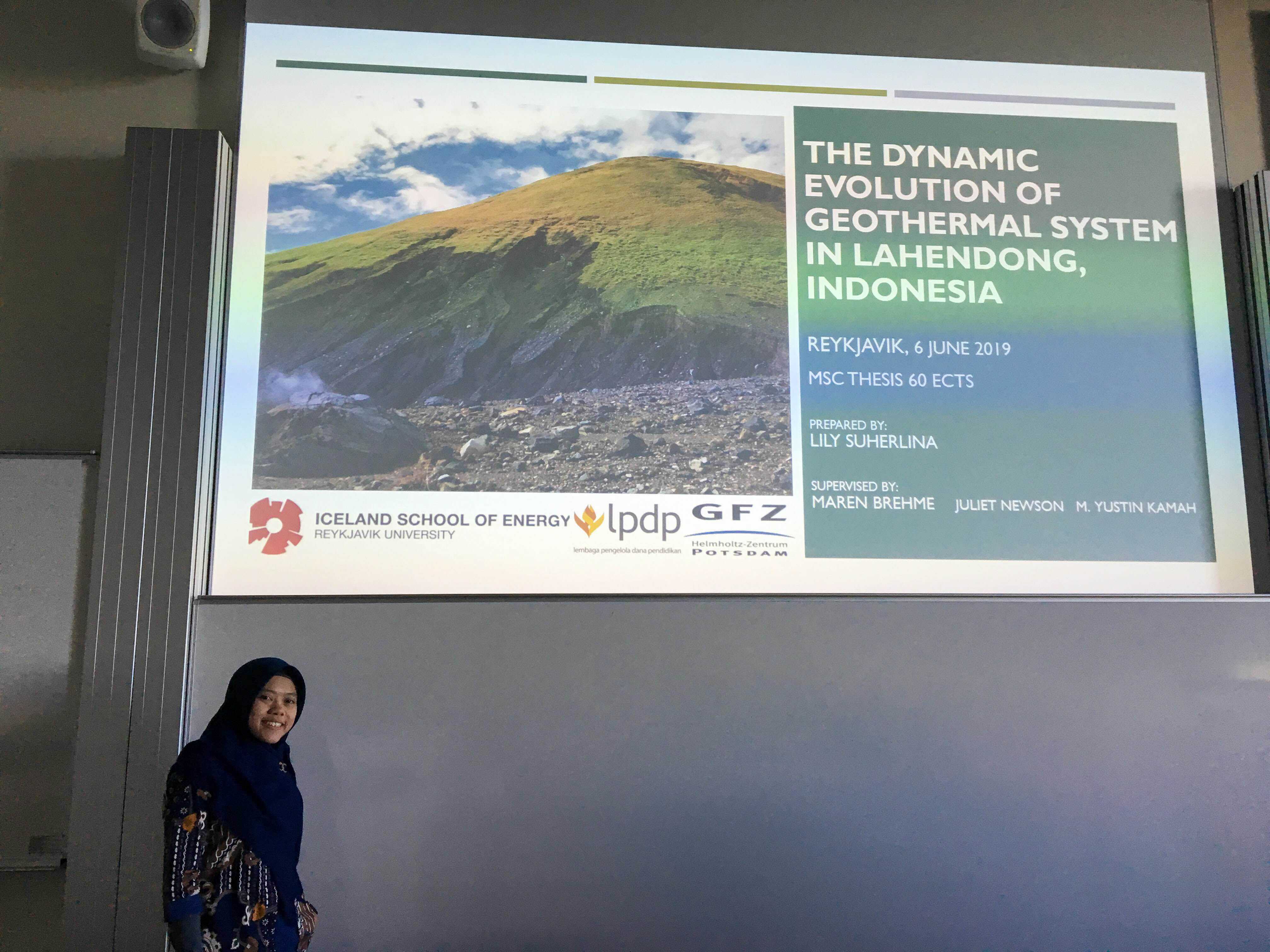MSc Thesis: The dynamic evolution of geothermal system in Lahendong, North Sulawesi, Indonesia
REYKJAVIK, June 06 - MSc in Sustainable Energy candidate, Lily Suherlina, successfully defended her master's thesis where she investigated the dynamic evolution of the Lahendong geothermal system in North Sulawesi, Indonesia. Lily's research was supervised by Juliet Newson from Reykjavik University, Maren Brehme from Technische Universiteit Delft, and Yustin Kamah from PT Pertamina.

Lily's study discussed integrated approaches to characterising dynamical evolution of the exploited high-enthalpy geothermal system of Lahendong, North-Sulawesi, Indonesia. As she explains, Lahendong has two primary reservoirs, the southern and the northern. Lily's main focus was characterisation of detailed fluid dynamics in the system with respect to geological structures and permeability distribution. Her approach combine integrated analysis of well data and detailed hydrochemical analysis to understand how the geothermal system evolves and the distribution of changes due to structural influence and prolonged exploitation of the reservoirs.
Lily implemented different methods in her research, including integrating well behaviour data, detailed surface fault mapping, analysis of well development, tracer tests, and logs, as well as the hydrochemistry dynamics in subsurface and surface using physicochemical and hydrochemical data, spatial analysis, relationship analysis, ternary chart evolution, geothermometer, XRD (X-Ray Diffraction) of cores and surface alteration.
She found that her results confirm the general trend of important faults (NE-SW, NW-SE, E-W, N-S) in the study area. The faults compartmentalise the reservoir. As well, from a comparison of the southern and the northern reservoir Lily was able to uncover broad insight of structures, permeability and hydrogeology, derived from the integrated analysis of well behavior data. All of this related to changes in reservoir fluid character with exploitation, she explains.
Also observing the hydrochemistry perspective, Lily's research revealed that the reservoir fluids have generally become more saline and equilibriated with boiling as possible mechanisms according to ternary chart evolutions and geothermometer analysis. She found that over time, spring waters have generally become more acidic followed by significant changes in physical features (ebullition, etc) and spatial changes. To Lily, these changes demonstrated permeability evolution and also the role of structural permeability in responding to changing reservoir conditions.
Lily's work has brought important and broad knowledge of evolution on fluid dynamics in Lahendong geothermal system. The exploitation of the system has triggered the changes, she states. Lily advises observing these changes with continuous and careful reservoir monitoring as it is highly important to ensure the long-term sustainability of the system.
Congratulations Lily on an excellent research project!
